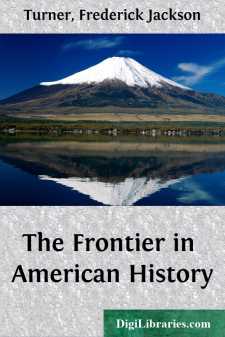Categories
- Antiques & Collectibles 13
- Architecture 36
- Art 48
- Bibles 22
- Biography & Autobiography 813
- Body, Mind & Spirit 142
- Business & Economics 28
- Children's Books 15
- Children's Fiction 12
- Computers 4
- Cooking 94
- Crafts & Hobbies 4
- Drama 346
- Education 46
- Family & Relationships 57
- Fiction 11828
- Games 19
- Gardening 17
- Health & Fitness 34
- History 1377
- House & Home 1
- Humor 147
- Juvenile Fiction 1873
- Juvenile Nonfiction 202
- Language Arts & Disciplines 88
- Law 16
- Literary Collections 686
- Literary Criticism 179
- Mathematics 13
- Medical 41
- Music 40
- Nature 179
- Non-Classifiable 1768
- Performing Arts 7
- Periodicals 1453
- Philosophy 64
- Photography 2
- Poetry 896
- Political Science 203
- Psychology 42
- Reference 154
- Religion 513
- Science 126
- Self-Help 84
- Social Science 81
- Sports & Recreation 34
- Study Aids 3
- Technology & Engineering 59
- Transportation 23
- Travel 463
- True Crime 29
Frederick Jackson Turner
Frederick Jackson Turner (1861–1932) was an influential American historian best known for his "frontier thesis," which argued that the American frontier played a crucial role in shaping the nation's character and democratic institutions. He presented this idea in his essay "The Significance of the Frontier in American History" (1893), emphasizing the impact of westward expansion on American development. Turner believed that the frontier fostered individualism, innovation, and democracy, marking a key distinction from European influences. His work had a lasting influence on historical scholarship and American identity, though it has also been critiqued for overlooking the role of Native Americans and other groups.
Author's Books:
Sort by:
PREFACE In republishing these essays in collected form, it has seemed best to issue them as they were originally printed, with the exception of a few slight corrections of slips in the text and with the omission of occasional duplication of language in the different essays. A considerable part of whatever value they may possess arises from the fact that they are commentaries in different periods on the...
more...
INTRODUCTION. The trading post is an old and influential institution. Established in the midst of an undeveloped society by a more advanced people, it is a center not only of new economic influences, but also of all the transforming forces that accompany the intercourse of a higher with a lower civilization. The Phœnicians developed the institution into a great historic agency. Closely associated with...
more...



